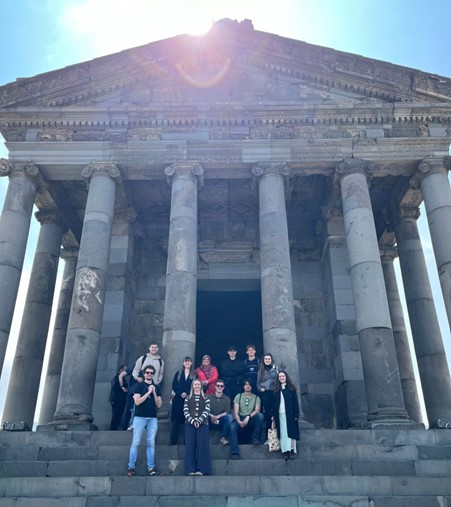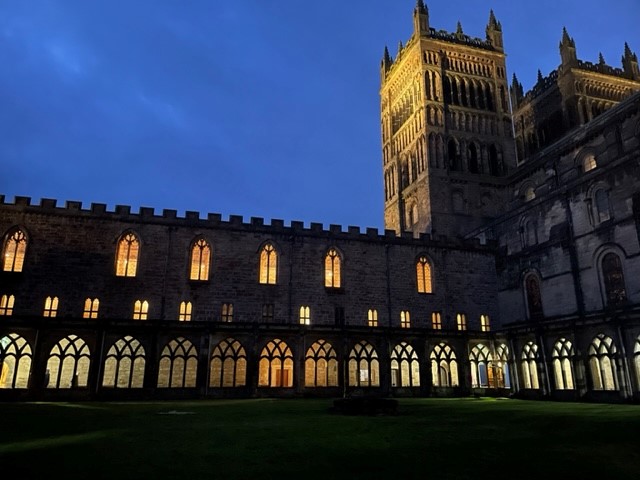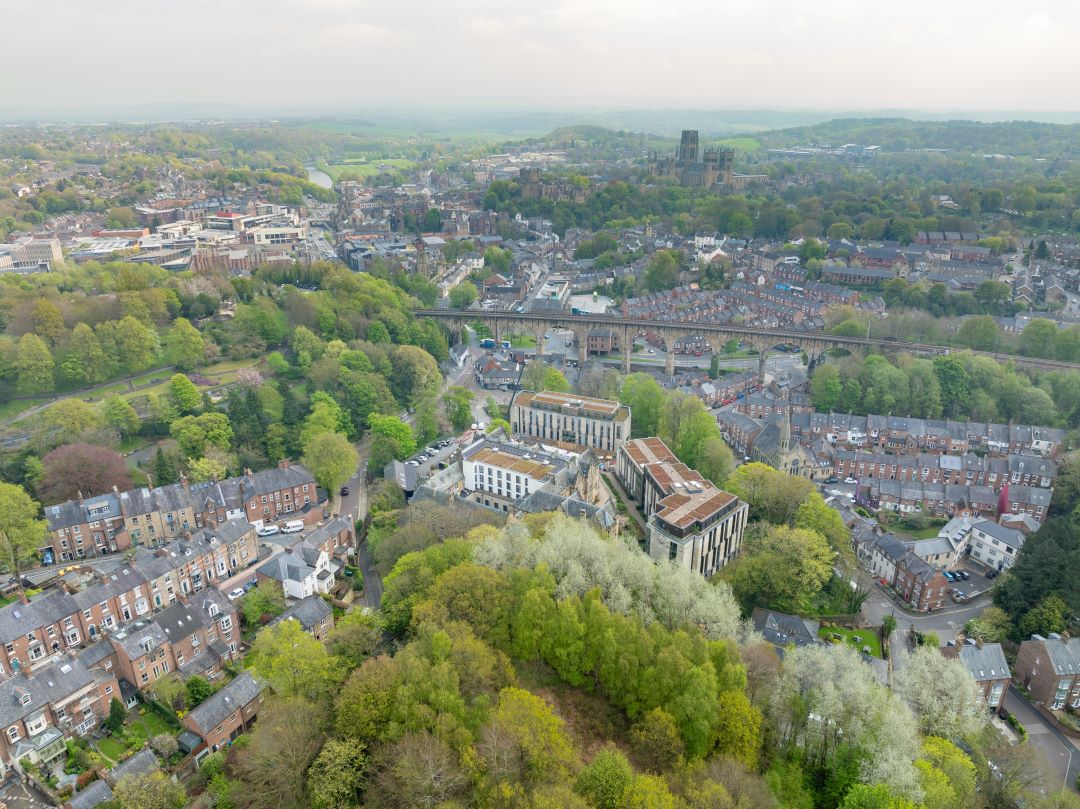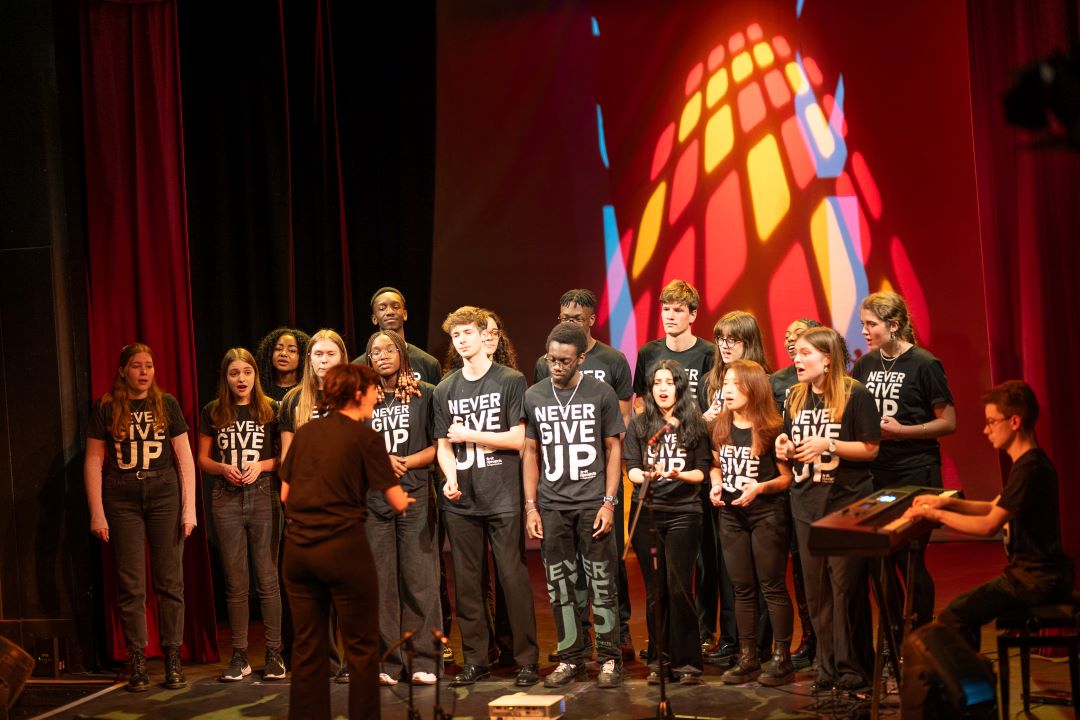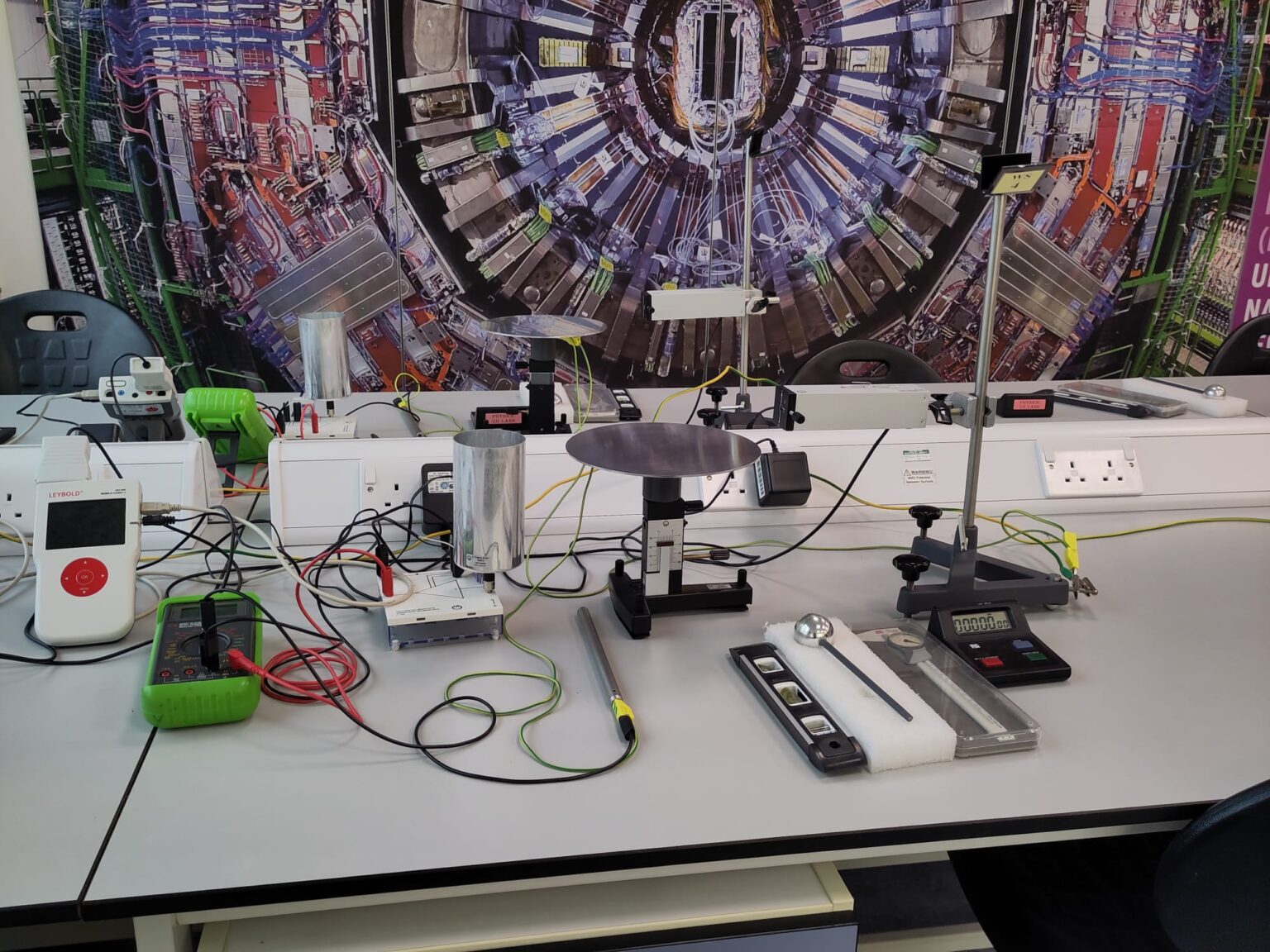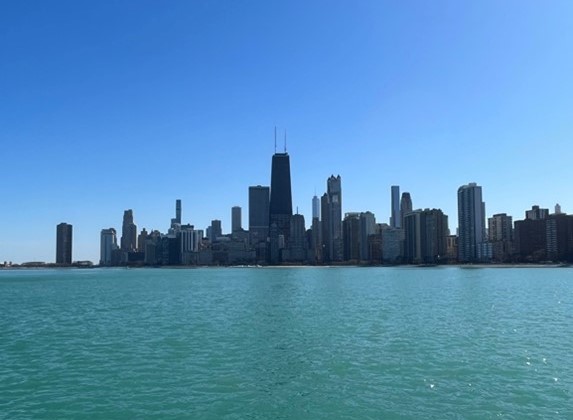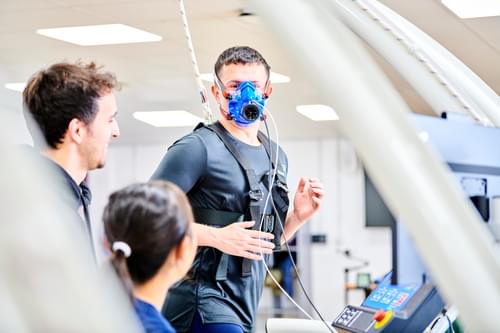Our field trip began with a range of presentations about the culture, politics and history of Armenia. Developing a deep understanding of their historical and contemporary conflicts, we were given great insight into the current geopolitical position of Armenia. We looked at how the Armenian Genocide (1915), Soviet Union (1920-1990), and Nagorno-Karabakh conflicts (1988-2023) have shaped political and social life today. This provided strong foundations for our critical, analytical study of the legacy of the trauma of conflict in Armenia society today, and its consequence on different peace-keeping efforts.
We attended a number of lectures at both the American University of Armenia and the Russian-Armenian University. These lectures provided invaluable insight into the different academic opinions on the current Nagorno-Karabakh (NK) conflict from the first-hand perspective of Armenian scholars themselves. Both institutions produced frank, critical evaluations of their past and present government’s abilities to handle the conflict in NK. This gave us a unique insight into the local Armenian’s perception of their government and the conflict. They encouraged our questioning and challenging of different actors and narratives of the conflict.
We also met with a range of different actors from all levels of the peace-building process in Armenia. Seeing first the British Ambassador, we looked at the role Britain is playing in Armenia and the South Caucuses more generally. We saw that Britain is merely a peripheral actor, supporting the Armenian government in pursuing a policy of peace. This was complimented by our meeting with the Deputy Foreign Minister of Armenia, Vahan Kostanyan. We developed a great understanding of Armenia’s past and present foreign policy agendas. The government is moving towards a policy of diversification, looking west to reduce their dependence on Russia.

The way in which Soviet history is remembered in Armenia and their current and changing relationship with Russia became a reoccurring theme during our time in Armenia. From our dinner at the Soviet Club (a USSR themed museum, restaurant and nightclub), to the Vernisage market stalls of USSR memorabilia and our lectures at the Russian- Armenian University, it became apparent that Russia retains a strong place in Armenian society. However, the consistent line of the government and organisations remains that Armenia is and will continue to diversify their foreign policy, thus reducing their dependence on Russia whilst developing strong bonds with the West.
It was interesting to hear the different perspective and narratives which academics, politicians and diplomats were putting forward. Seeing how different actors framed the conflict reflected their different positions and interests. This was similarly apparent in our meetings with the Council of Europe (CoE) and the United Nations Development Programme (UNDP). Whilst speaking briefly of the conflict in NK, both organisations primarily spoke of their projects in Armenian society more generally. They are both working with the government and other organisations to improve equality and opportunities for women. Grounded in the CoE’s Istanbul Convention and the UN’s Women, Peace, and Security agenda, they have been working under conditions of protracted conflict to improve society more generally.

Other international humanitarian organisations such as the ICRC, as well as local grassroot groups we met (OxYGen and the Human Rights Research Centre Armenia) were similarly working on projects for refugees, women, and children. Their community-based work is essential in protecting some of the most vulnerable groups in Armenian society whilst working towards improving living conditions and equality within the country more generally. Their community-based work prioritises local people, with a strong focus on improving life for women. It was pleasing to see so many women in such high positions working within these organisations.

Finally, we visited the Tsitsernakaberd Genocide Memorial Complex and Museum. We felt the weight of the history of the Armenian Genocide in society today. The sharp, oppressive structure of the memorial contrasted sharply with the Memory/Fir Ally, a memorial of fir trees dedicated by different states and organisations which have acknowledged the genocide. This left us with a profound sense of the injustice the Armenians have faced throughout their recent history. Visiting their important religious and cultural sites (for example Garni, Geghard, and Lake Sevan) we were left with a deep and strong impression of Armenia. The people are proud of their country, culture, and history. They are a resilient nation and are strengthened by the conflicts they have faced and overcome.
We would like to extend our thanks to Dr Hakob Gabrielyan, our local connection for his enduring generosity, time, and help in coordinating our trip. As a previous graduate of DGSI’s Master’s Degree in Conflict Prevention and Peacebuilding, his local and theoretical knowledge were invaluable to helping us understand this beautiful and dynamic context. Thanks to Dr Marzieh Kouhi Esfahani for her exceptional knowledge of the South Caucuses which enhanced our understanding and questioning in so many ways. And to Dr William Plowright, for single-handedly orchestrating this entire trip. He enabled us to put our masters and all the knowledge with have gained this year into practice. It has been a unique and invaluable part of our degree, giving us a real taste of the work we hope to go into, inspiring us to pursue careers within the peacekeeping continuum.
Discover more
Feeling inspired? Take a look at our School of Government and International Affairs webpages
For information about postgraduate courses at SGIA see here
Follow The Durham Student on Instagram, TikTok and YouTube
Create your own personalised prospectus here

